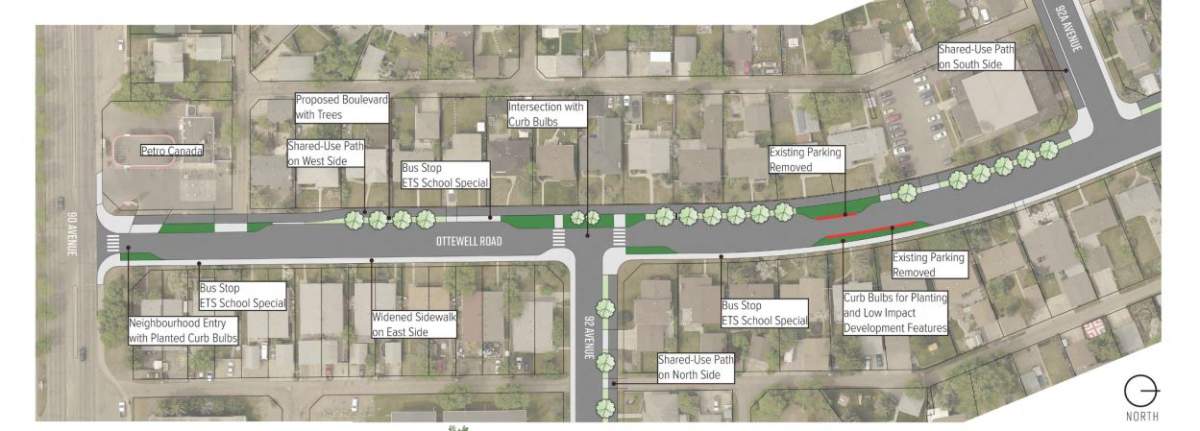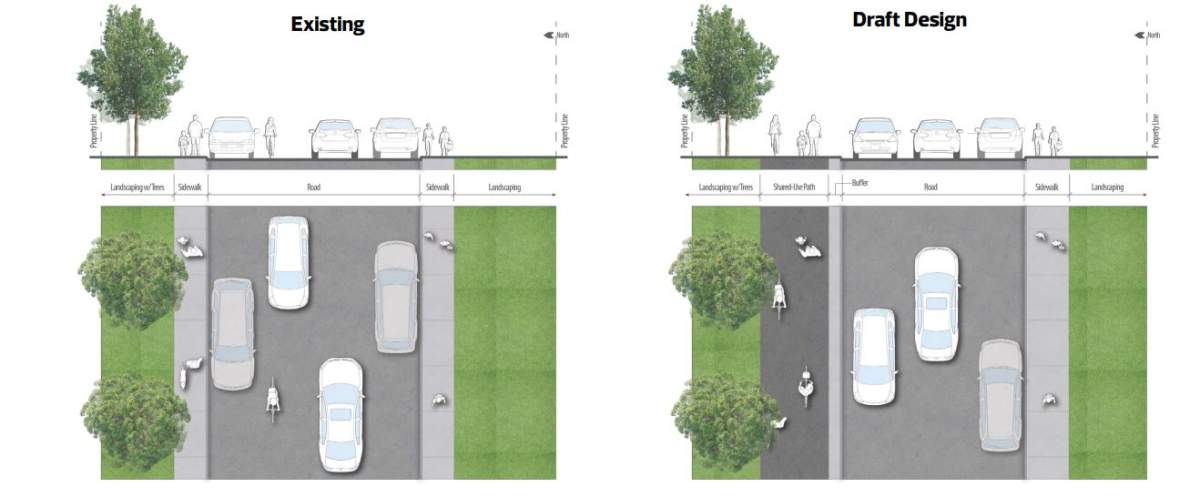When Joyce Coffey heard that her Ottewell neighbourhood had been chosen by the City of Edmonton to be renewed, she was excited, hoping that existing infrastructure would be enhanced and seating areas could be added.

Instead, she was frustrated and upset when she saw flood mitigation infrastructure would be replacing parking spots in front of her and her neighbour’s houses in the east Edmonton area.
“There’s no parking in front of both of our homes, and I understand there are areas throughout Ottewell where they’ll have the similar situation,” she said.

The neighbourhood is flanked by 75 Street on the west and 50 Street to the east; 90 Avenue to the south and 98 Avenue and Terrace Road to the north.
Most of the residential construction in Ottewell took place in the first fifteen years following the Second World War and was, for the most part, built out by the 1980s, according to City of Edmonton data.
Ottewell is a typical post-war, car-centric neighbourhood with wide streets full of mainly single-family homes.

Get daily National news
Coffey said the renewal changes will make the area more desirable to live in, but her fellow residents would rather have parking stay the same than see new neighbours.
“I really like Ottewell for its small-town feel,” she said.
Coffey added she didn’t feel her concerns were heard by city staff and that changes she requested didn’t make it in to the final plans.
“It just feels like the changes aren’t being made by the people that live there.”
In an emailed statement to Global News, the City said it conducted “extensive” public engagement since the process of neighbourhood renewal began in December 2020.
“Residents and stakeholders were invited to co-create with the project team a vision and principles based on their neighbourhood’s livability and infrastructure needs,” said the city.
“Focus was placed on ensuring diverse voices within the neighbourhood were identified and encouraged to participate.”
The city said during early stages of engagement, it heard feedback that the early designs had too much of an impact on parking and the design was changed to reflect that.

“The feedback was used to shape the final design by using multiple smaller features — roughly the size of one parked car — throughout the neighbourhood, instead of larger features that would have longer areas of parking restrictions,” the city said.
Ward Métis Coun. Ashley Salvador said removing parking spots is about tradeoffs: in some spots, drainage infrastructure is being installed and in others, streets will be narrowed to encourage cars to drive slower.
“Right now, Ottewell (has) quite large, wide roads and ample parking is available on the street,” said Salvador.
“Going forward, if parking pressures are experienced in the neighbourhood, the city has a multitude of tools that we can put in place as part of our curbside management strategy to abate any negative outcomes.”
Salvador said the city could implement resident permit parking, adding time-limited parking and accessible parking spots where needed.
During neighbourhood renewal, the city said it will rebuild sidewalks, roads, curbs and gutters and replace streetlights.
In Ottewell, the city said it will need to cut down “a limited” number of trees and plans to plant about 550 new ones.
Construction is set to begin in the spring.











Comments